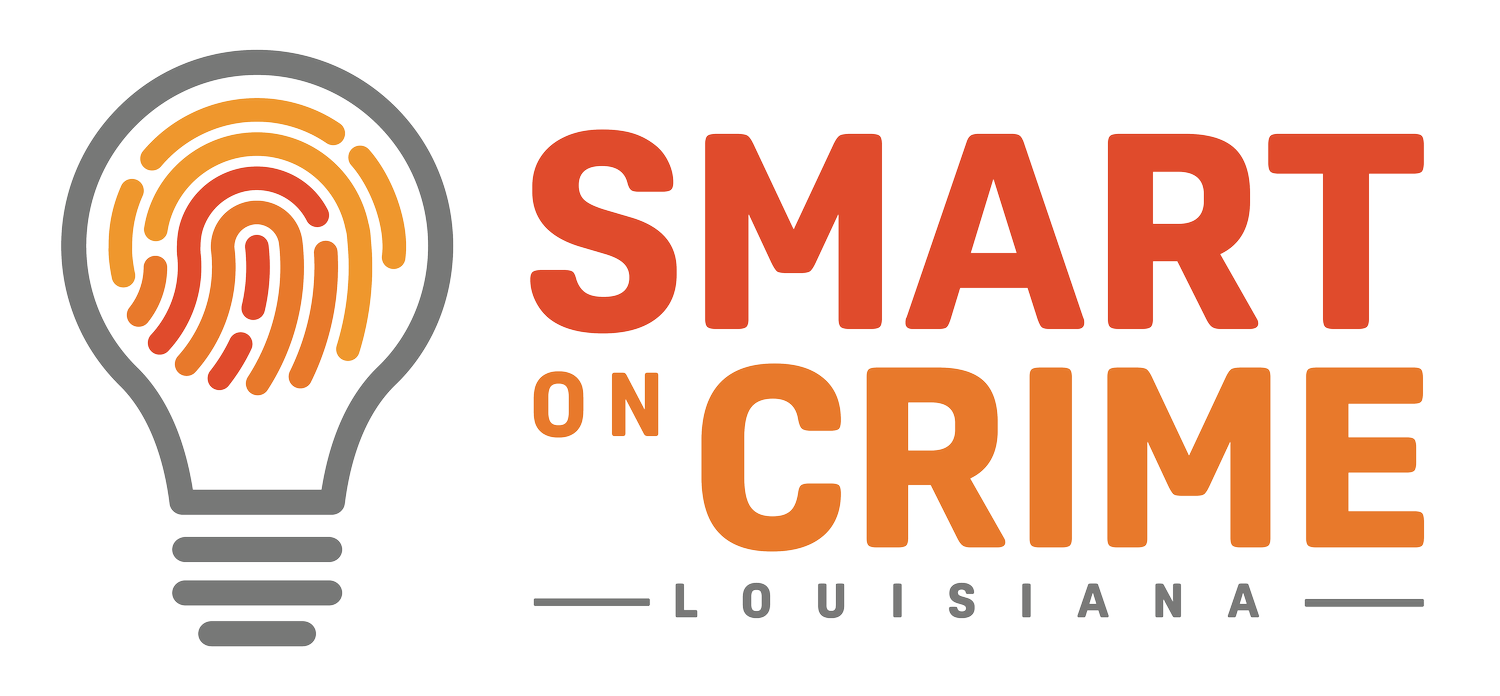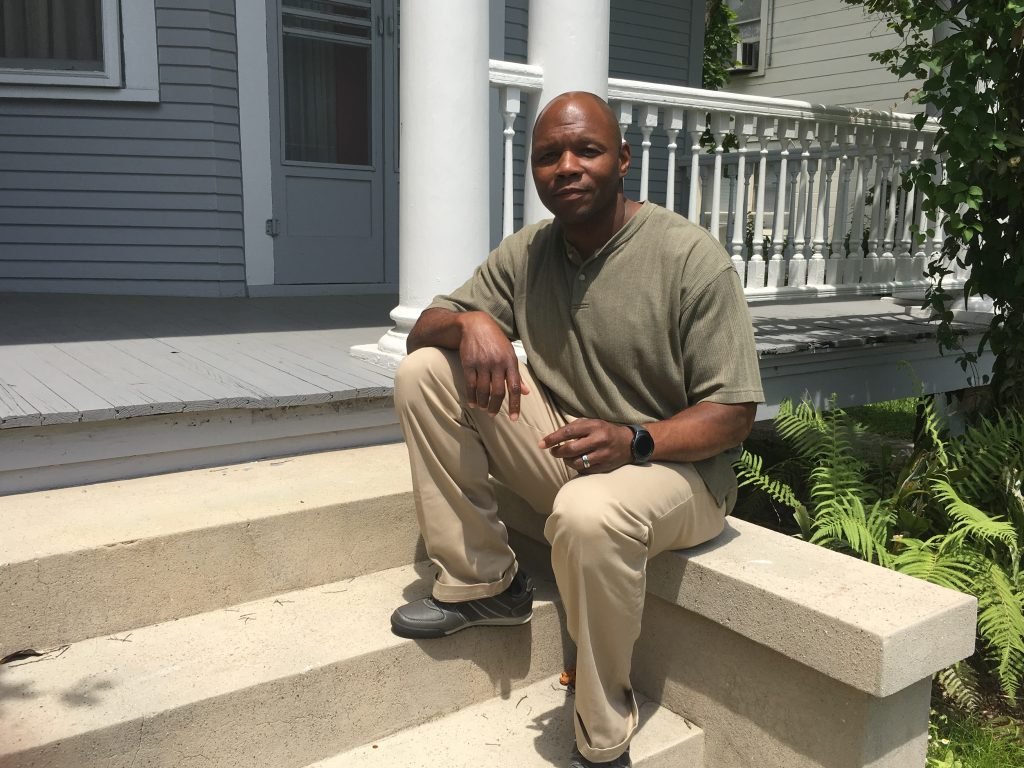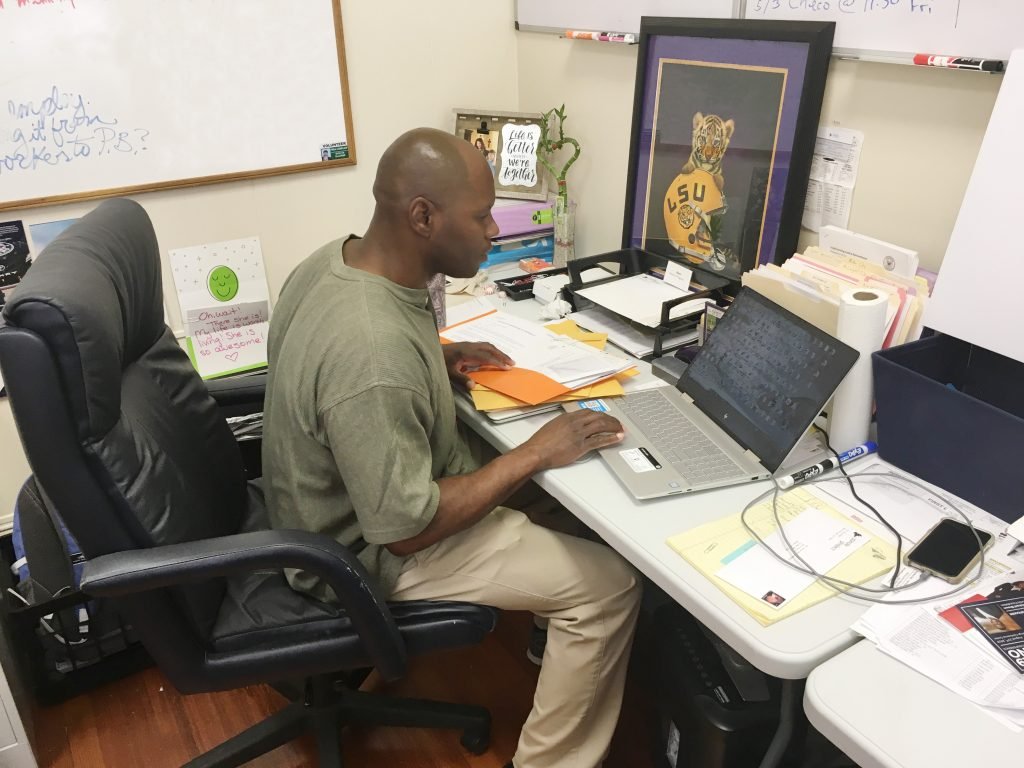Giving Back: Louis Gipson Paying It Forward with his Second Chance
Originally appeared in
This is Part I of the “Good News” series from Smart on Crime Louisiana, highlighting stories of formerly incarcerated individuals and their second chances at freedom following the 2017 passage of Louisiana’s Justice Reinvestment Initiative.
Redemption is a complicated matter. It can be filled with tragedy, triumph and usually a long journey of self-discovery, often marked with atonement for one’s previous transgressions.
When does a person deserve a second chance? Society has wrestled with that question for generations, but recently new criminal justice reforms are allowing rehabilitated incarcerated individuals the chance for a new lease on life – an opportunity for true redemption.
Louis Gipson was a self-described misguided teenager from New Orleans. Transferring from one school to another, Gipson, now 43, spent much of his youth in the streets, hanging out with the wrong crowd. At age 17, he found himself caught up in a drug territory dispute that turned deadly. Gipson was found guilty of second-degree murder and sentenced to life in prison without parole.
Gipson spent 25 years behind bars, in three different prisons, including 11 years at Louisiana State Penitentiary (Angola). Rather than waste the rest of years rotting away in prison, Gipson tackled his rehabilitation process head-on, despite never knowing if he would ever be able to experience life as a free citizen again.
While incarcerated, Gipson completed his General Education Diploma (GED), earned a diploma of culinary arts and completed hundreds of hours of self-help classes, ranging from substance abuse to anger management.
Gipson was released from prison in August 2018, and went through an intensive two-week course with the Louisiana Parole Project to get acclimated back into society. The Louisiana Parole Project is an organization whose mission is to improve public safety through the smart reintegration of returning citizens.
After spending six months at a transition house in Opelousas, Gipson was hired by the Louisiana Parole Project as a reentry specialist. The organization was searching for a former client that was familiar with the reentry process and could assist future released individuals. This made Gipson an ideal candidate.
“I was lost, and it was the Parole Project that held my hand and showed me which way to go and directed me on the path that I’m on now,” Gipson says.
His days are now spent offering guidance to formerly incarcerated individuals like himself, who are trying to assimilate back into society. Gipson assists new clients with everything from obtaining necessary documentation, such as a driver’s license or social security card, to ensuring they attend technology and financial literacy classes. By far his greatest strength is the personal touch he offers because of his own reentry experience. Even basic daily interactions in society can seem foreign to someone incarcerated for decades, but Gipson takes newly released individuals under his wing, looking out for them and most importantly, letting them know someone cares.
The biggest hurdle Gipson encounters with clients, however, is their propensity to try to assimilate back too quickly. “They’re rushing trying to catch up and trying to see everything all at once,” Gipson says. “I tell them to slow down, take your time and let life come to you.”
As a beneficiary, Gipson is in favor of the positive direction Louisiana’s criminal justice system is heading. Utilizing innovative, smart on crime efforts, the reforms passed in Louisiana and around the nation are ensuring prison resources are dedicated to those who truly pose a threat to public safety and those reentering society are prepared to lead productive lives. He is also firm believer in the corrections system’s ability to rehabilitate an individual.
“The system does work,” Gipson says. “Don’t just lock them up and throw them away the key. In my case, the system works, and with all our clients that have been released, the formerly incarcerated lifers who had life without parole, the system has worked. None of us have been rearrested.”
Gipson has learned a lot from his experiences and developed a deep appreciation for things most may take for granted, such as the simple beauty of nature and walking around outside uninhibited. But, the most important lesson he’s taken away from his redemption journey is the importance of caring for his fellow man.
“I respect life now,” Gipson says. “I respect my life, I respect your life, I respect everybody’s life.”


